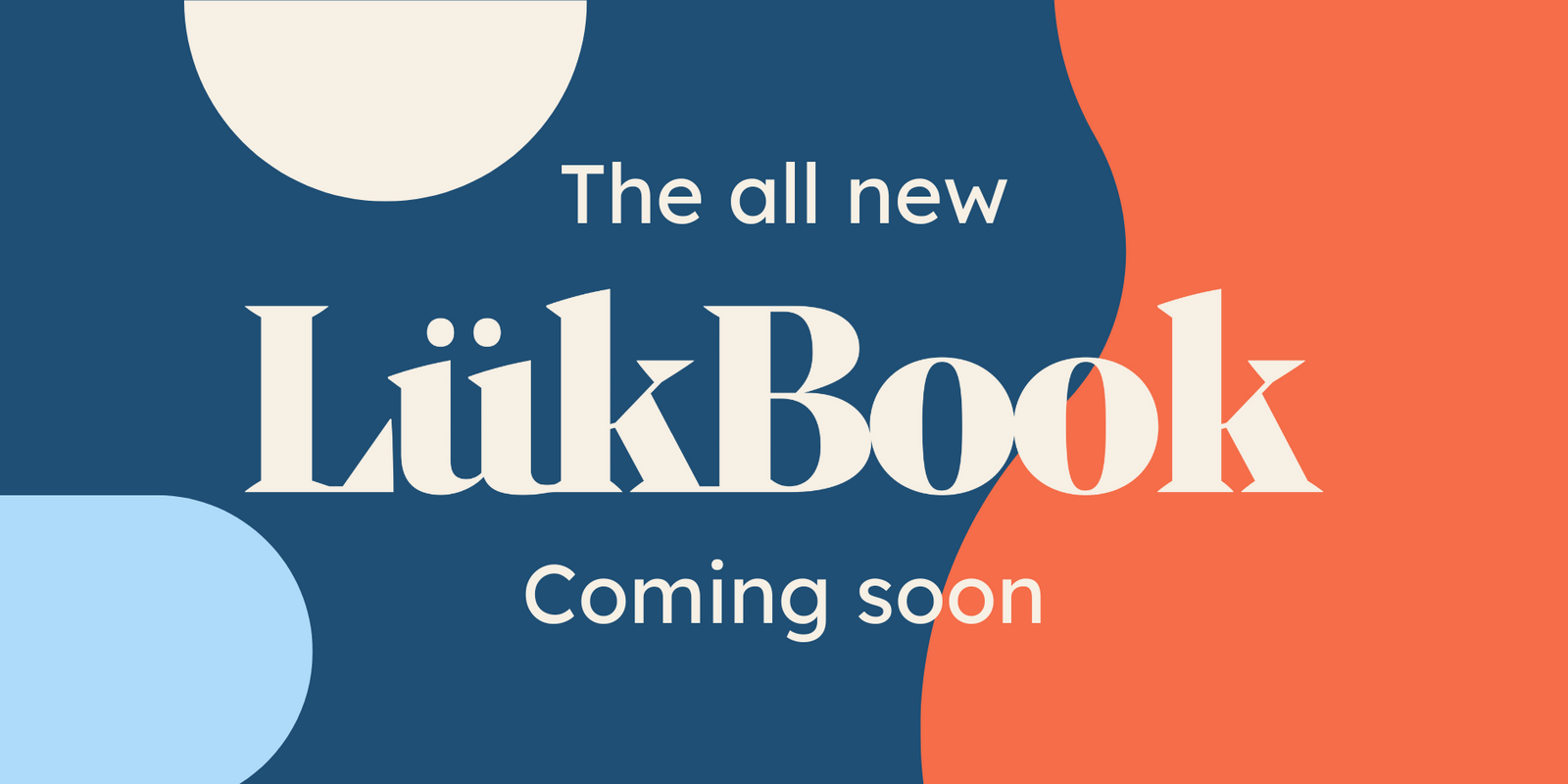Why we don't talk about bodies

If you’ve been following LükBook for a while, you’ve likely noticed that we are all about revolutionising plus size fashion, and our social media is jam-packed with beautiful babes rocking Australia’s best size 14+ brands.
You also may have noticed that we don’t mention their bodies. No talk about how a bodycon dress hugs your curves ‘in all the right places’, no mention of how we can ‘minimise’ the focus on some body parts, and no hint of the dreaded F word…flattering.
What you may not have noticed is that we also steer clear of body positive messaging - no ‘love your curves’ here. Why? Because we’re tired of talking about bodies. Too many of us are told from a young age that our bodies are the most interesting and/ or important thing about us. For instance, can you remember the last time you attended a family gathering that wasn’t peppered with diet talk?. If so, lucky you! For us personally, we’ve got better at pushing back against the tidal wave of body obsession, but boy is it exhausting!
It is out of this exhaustion that we have decided to adopt a position of body neutrality at LükBook. What does this mean? It’s easiest to explain by comparing it with the better-known concept of body positivity. Body positivity, at its core, is focused on embracing your body, irrespective of its shape, size, or the extent to which it aligns with mainstream ‘beauty norms’.
In comparison, body neutrality is about accepting your body based on what it enables you to do, and in so doing, removing the focus on its appearance. In many ways, these concepts are two sides of the same coin and many of our favourite influencers, models and activists practise them simultaneously.
However, for us, as a plus brand, we have made the decision to focus on body neutrality for three reasons:
Reason #1 - Not all of us will identify with body positivity - and that’s okay
Despite the fact that two-thirds of Australian women live in bodies classed as ‘plus size’, the reality is that we live in an inherently fatphobic culture. This is ingrained in us from a young age, with over 50% of 8-11 year old girls expressing concerns about their body size. While we know that the majority of Australian women experience body image concerns, for plus size women these concerns are often compounded by the societal discrimination or harassment we receive for simply existing.
It would therefore be naïve to suggest that it’s easy for plus women to feel consistently body positive. We are genuinely happy for all those who do, while acknowledging that it can be an exclusionary club. Silencing the deluge of utter rubbish we are fed about people in larger bodies often requires protective factors - such as a supportive family or partner, or access to therapy, and therefore often involves an element of privilege.
Body neutrality can be thought of as the middle ground - a calm amongst the storm. It focuses on the ways our bodies help us to move through the world and do the things we love, while not insisting that we need to always feel positive about how our bodies look.
Reason #2 - Body positivity is more than a hashtag
While you’ve no doubt heard of body positivity, do you know where the movement originated, or what it represents? It in fact started as fat activism in the USA in the 1960s, and encouraged people in larger, more marginalised bodies to protest against structural biases and discrimination - in this case the narrow, western ideal of beauty.
But if you scroll through #bodypositivity on Instagram in 2023, it’s clear that the body positivity movement has been co-opted. Instagram is awash with fashion brands claiming to be #bopo while only making up to a size 16, and influencers in smaller bodies posing in such a way that they look larger than they are, in order to claim they don’t adhere to mainstream beauty standards. It’s clear that there is now a large gap between the nuanced roots of the body positivity movement and how the term is now used.
For us, we don’t feel that we can do the movement justice, nor is it necessarily our place, as a fashion company, to take up space in the important, ongoing discussion about the acceptance of larger bodies. If you’re keen to follow some authentic content that truly challenges what society tells us about larger bodies (which we 100% recommend) we suggest checking out (below, from left-right): @thebodzilla, @laceyjadechristie and @faternise.

Reason #3 - We want to move away from talking about bodies. Full stop.
It’s fantastic if body positivity has you embracing aspects of your body that society may have deemed as ‘flaws’ but here’s the rub: when you’re embracing your body, you’re still thinking about it. It’s still occupying space in your brain and, most importantly, you are still linking your worth to it. What does this mean if your body changes? What if you lose or gain weight, fall pregnant, or experience physical trauma?
But more importantly, it hits a fundamental point: are our bodies really so interesting? This comes back to the societal conditioning we experience. We are taught to think about and talk about bodies constantly. Even when that experience is positive, is that where we want to place our energy? Or would we prefer to discuss our skills, achievements, or aspirations?
Want to read more on the history of the body positive movement? Check out these articles:
- Why the body positivity movement risks turning toxic - The Conversation
- From New York to Instagram: The history of the body positivity movement - BBC Bitesize




